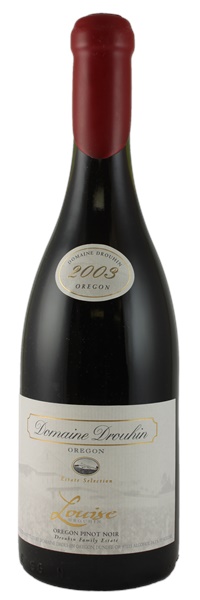Light label condition issue
Removed from a professional wine storage facility; Purchased from a private collector; Consignor is second owner

Image above is an example. To view the image of the lot, click the item number.
Estimate
Fresh, pure aromas of candied rose petal and cherry. Bright, juicy red berry flavors complicated by tobacco and dusty, floral tones. A plump, spicy wine, finishing with fine-grained tannins and very good persistence.